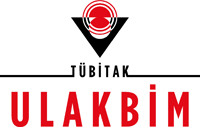AN INVESTIGATION OF FOOD SECTOR SMES’ PERCEPTIONS OF HALAL FOOD CERTIFICATION: TR 82 REGION
Keywords:
Kastamonu, Çankırı, Sinop, Halal Food, Halal Food Certification, SMEAbstract
People follow dietary restrictions based on their social and cultural values and religious belief, the last of which plays the most significant role in this regard. Having a fast-paced lifestyle, today's modern consumers are, however, essentially at the mercy of producers. The aim of this study is to examine small and medium enterprises’ (SMEs) perceptions of halal food certification, which is especially important for Muslim consumers. Data were collected between September and December, 2018, using questionnaire survey method. Study population consisted of 651 SMEs operating in TR 82 region consisting of the cities of Kastamonu, Çankırı and Sinop. Study sample consisted of 412 SMEs in TR 82 region. The questionnaire was developed based on previous studies conducted by Marzuki and Zannierah (2012), and Kolkman (2014). Factor analysis revealed seven factors regarding participants’ perceptions of halal food certification. These factors were Perception Benefit, Cost and Bureaucracy, Competitive Advantage, Non-Muslim Effect, Local Awareness, Difficulty and Conformity to Islam. These seven factors accounted for 74.399% of the total variance. One-Way Analysis of Variance (ANOVA) and t-test were used to analyze the data. We believe that this study provided important insights into SME’s perceptions of halal food certification for researchers.









